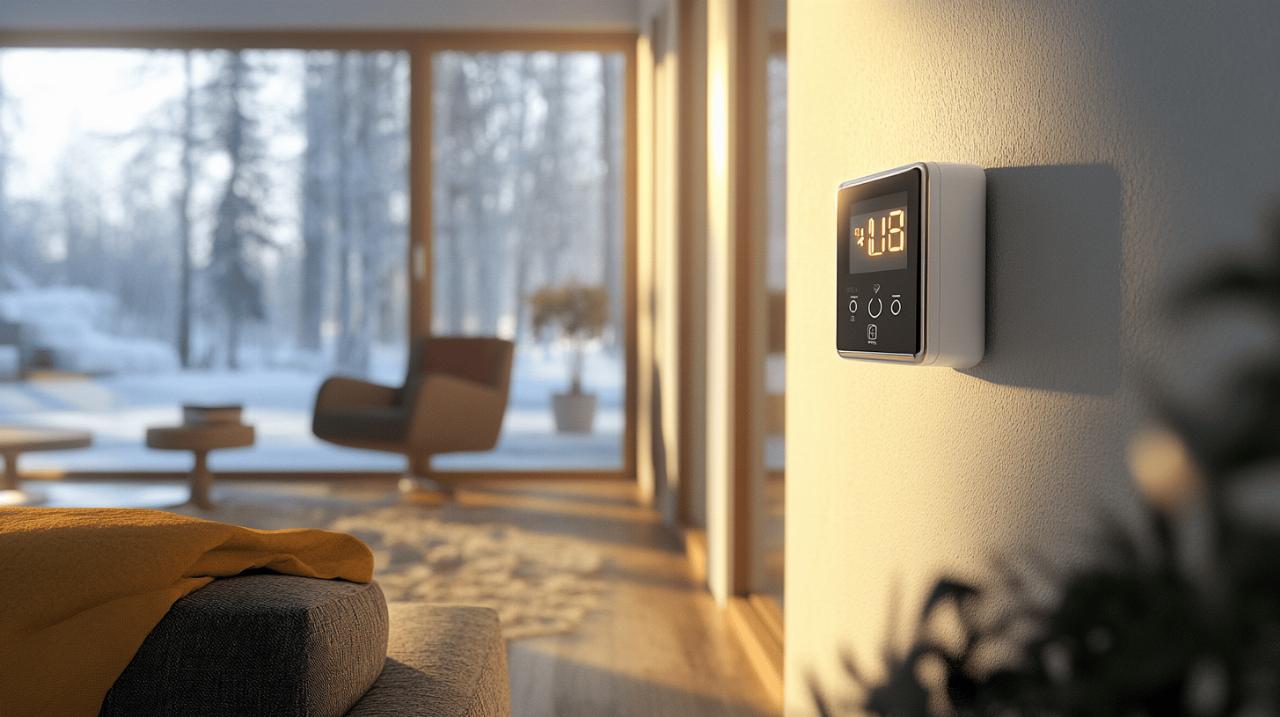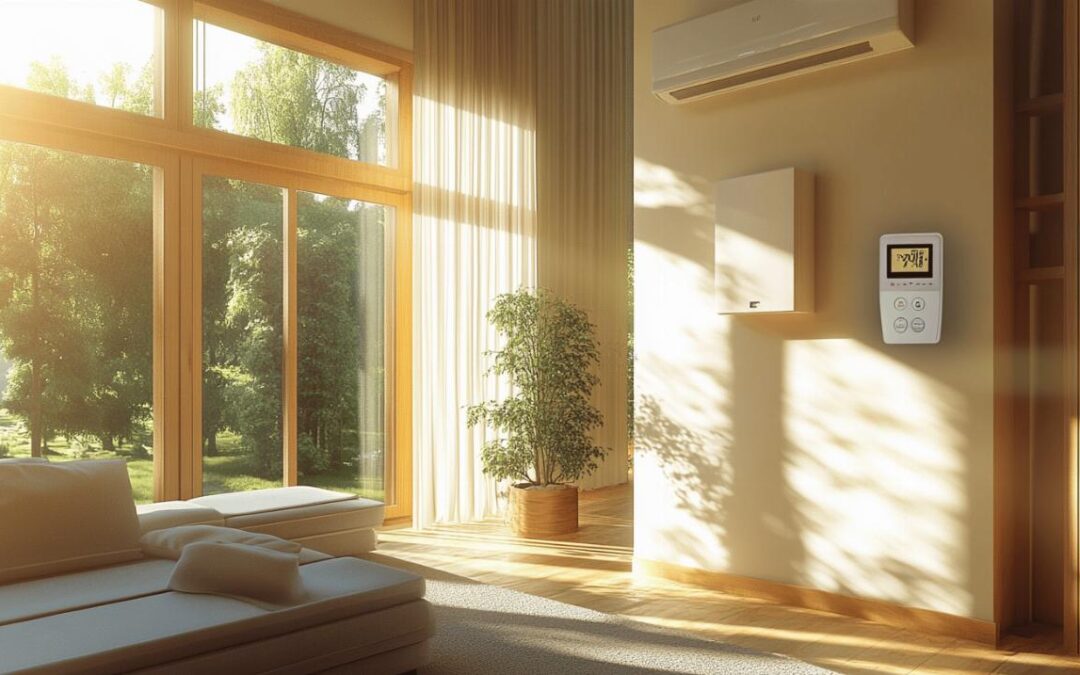When winter’s chill sets in, the efficiency of your heating system becomes paramount to both your comfort and your budget. Selecting the right heating solution can dramatically reduce energy consumption while maintaining a cosy home environment. This guide explores how to make an informed choice that balances performance, cost, and environmental impact.
Understanding energy efficiency in heating systems
Energy efficiency in heating systems refers to how effectively a system converts fuel into heat for your home. The measurement helps consumers compare different options when making purchasing decisions. Modern heating technologies have significantly improved efficiency ratings compared to older models, offering substantial savings on household energy expenses over time, as seen on https://www.kamerolli.it/. These ratings are typically expressed as percentages or specific metrics like SEDBUK (Seasonal Efficiency of Domestic Boilers in the UK) for boilers or Coefficient of Performance (COP) for heat pumps.
Energy efficiency ratings and what they mean
Understanding efficiency ratings can help you make cost-effective decisions. For instance, upgrading from a G-rated to an A-rated boiler with comprehensive heating controls can save approximately £420 in Great Britain and £500 in Northern Ireland annually. These ratings reflect how much energy is converted to usable heat versus how much is wasted during operation. Higher-rated systems typically cost more initially but deliver greater long-term savings through reduced energy consumption.
The environmental and financial benefits of efficient heating
Efficient heating systems deliver twin benefits: reducing your carbon footprint while lowering your utility bills. With heating and hot water accounting for over half of typical energy bills, the financial impact of an efficient system is substantial. As the UK moves toward its net-zero carbon emissions targets, low-carbon heating alternatives are becoming increasingly important in the national energy strategy. Systems that use renewable energy sources or have exceptional efficiency ratings contribute to reduced greenhouse gas emissions and support sustainability goals.
Assessing your property requirements
Before selecting a heating system, it’s essential to evaluate your property’s specific needs. Each home has unique characteristics that influence heating requirements and system efficiency. The age, size, layout, and construction materials all play crucial roles in determining the most suitable heating solution.
Evaluating insulation levels and heat retention
The insulation quality of your property significantly impacts heating system performance. Well-insulated homes retain heat more effectively, requiring less energy to maintain comfortable temperatures. Before investing in a new heating system, consider improving insulation in walls, lofts, and floors, and addressing drafts around windows and doors. These improvements can reduce heat loss by up to 25%, allowing you to install a smaller, more economical heating system while maintaining comfort levels throughout your home.
Calculating the appropriate system size based on property dimensions
Correctly sizing your heating system is crucial for optimal efficiency. An oversized system will cycle on and off frequently, wasting energy and causing unnecessary wear, while an undersized system will struggle to heat your space adequately. Professional heating engineers calculate heating requirements based on room volumes, insulation values, window sizes, and other factors to determine the appropriate capacity measured in kilowatts. This precise calculation ensures your system operates at peak efficiency while providing sufficient warmth.
Comparing different heating system technologies
The UK heating landscape is diverse, with options ranging from traditional gas boilers to innovative renewable technologies. Each system has distinct advantages and limitations regarding efficiency, installation requirements, running costs, and environmental impact. Most UK homes currently use gas central heating, but the national energy strategy is shifting toward low-carbon alternatives as part of climate change mitigation efforts.
Modern condensing boilers versus traditional systems
Modern condensing boilers represent a significant advancement over older non-condensing models. They capture and use heat that would otherwise escape through the flue, achieving efficiency ratings of 90% or higher compared to 70-80% for conventional boilers. While gas remains a relatively inexpensive heating fuel in the UK, government plans may restrict new gas boiler installations after 2035 as part of decarbonisation efforts. For homes without access to the gas network, oil and LPG boilers provide alternatives, though they face similar sustainability concerns and price volatility.
Heat pumps and renewable heating alternatives
Heat pumps represent the forefront of low-carbon heating technology. Unlike combustion-based systems, they extract heat from external sources like air, ground, or water and concentrate it for home heating. Air source heat pumps can deliver three units of heat for every unit of electricity consumed, making them 300% efficient compared to the 90% maximum efficiency of gas boilers. Other renewable options include biomass boilers that burn wood pellets or chips, and solar thermal systems that can supplement hot water production. The UK electricity grid is becoming progressively cleaner, with 60% now coming from zero-carbon sources compared to just 25% in 2010, making electric heating increasingly climate-friendly.

Installation and maintenance considerations
The effectiveness of any heating system depends significantly on proper installation and regular maintenance. Even the most efficient system will underperform if incorrectly installed or poorly maintained. Professional installation ensures safety, compliance with regulations, and optimal performance from day one.
Professional installation requirements for optimal performance
Installation quality directly impacts system efficiency and longevity. For gas and oil systems, installers must be properly certified, while heat pump installations require specialised knowledge to ensure correct sizing, positioning, and integration with existing systems. Professional installers will consider factors like radiator sizes, pipe diameters, and control systems to optimise overall performance. They can also advise on complementary measures like improved insulation or upgraded radiators that may enhance system efficiency further.
Creating an effective maintenance schedule for longevity
Regular maintenance preserves efficiency and extends system lifespan. Boilers should undergo annual servicing by qualified technicians to ensure safe, efficient operation and comply with warranty requirements. For heat pumps, filters should be cleaned or replaced monthly to maintain airflow and efficiency. Hot-water radiators benefit from bleeding once or twice per heating season to remove trapped air that can reduce heating effectiveness. Creating and following a maintenance calendar helps prevent unexpected breakdowns and maintains peak efficiency throughout the system’s life.
Smart control systems for enhanced efficiency
Advanced control systems represent one of the most cost-effective ways to improve heating efficiency without replacing your entire system. Smart controls allow for more precise temperature management and can significantly reduce energy consumption by eliminating unnecessary heating.
Implementing zonal heating controls in your property
Zonal heating divides your home into independently controlled areas, allowing you to heat only the spaces you’re using. This approach can reduce energy consumption by up to 20% compared to heating the entire property uniformly. Zone controls typically use thermostatic radiator valves or dedicated thermostats in different rooms or areas, enabling customised temperature settings throughout the home. This targeted approach is particularly valuable in larger properties where different areas may have varying occupancy patterns or temperature preferences.
Smart thermostats and remote management capabilities
Smart thermostats take heating control to new levels of convenience and efficiency. These devices learn your routines, adjust temperatures automatically, and can be controlled remotely via smartphone apps. Features like geofencing can detect when residents are approaching home and activate heating accordingly, while weather-responsive controls adjust operation based on external conditions. Some systems can even integrate with renewable energy sources, prioritising heating when solar panels are generating electricity or when off-peak tariffs apply. These intelligent controls maximise comfort while minimising energy use, typically paying for themselves within two to three years through reduced bills.

